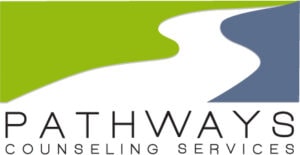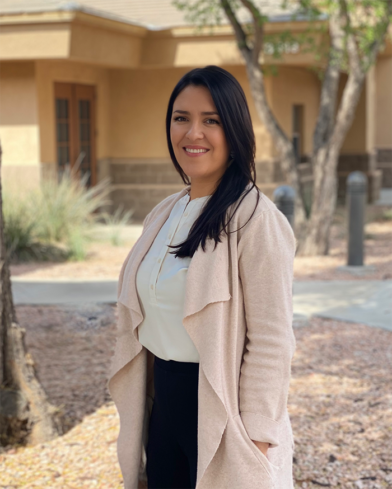
Proactive Parenting in Scottsdale, AZ
Proactive Parenting During the Baby Stage (0–2 Years
At Pathways Counseling Services in Scottsdale, AZ, we understand that the first two years lay the foundation for a child’s lifelong emotional and cognitive health. Proactive parenting in this baby stage means partnering with parents to anticipate developmental needs, reduce stress, and build secure attachments before challenges arise.
Below is how we guide Scottsdale families through infant development, key strategies, and how our support can make a difference.
Understanding Infant Development
Infants progress rapidly across motor, cognitive, social-emotional, and language milestones in their first 24 months. According to CDC guidelines, milestones such as smiling by about 2 months, sitting by 6 months, and first words around 12–15 months serve as helpful markers for parents to track growth and plan supportive interactions.
By proactively learning these milestones, parents at Pathways can feel confident anticipating their baby’s next steps rather than reacting with uncertainty.


Key Proactive Strategies for Proactive parenting for Babies
Responsive caregiving & Secure attachment promptly attending to cries, making eye contact, and engaging in turn-taking vocalizations foster trust and emotional security.
According to the CDC research indicates that sensitive responsiveness in infancy supports later emotion regulation and social competence.
At Pathways Counseling Services, we coach parents on reading early cues and responding in ways that strengthen the parent–infant bond, reducing parental stress and promoting calm family dynamics.
Routine & Consistency: Establishing regular feeding, sleep, and play routines helps babies feel safe and helps parents predict needs rather than react under pressure.
We work with Scottsdale families to design practical schedules that fit their lifestyle while allowing flexibility for growth and adjustment, minimizing distress for both baby and caregiver.
Safe, Enriching Environments: Proactive baby-proofing—securing furniture, covering outlets, and creating safe exploration zones—prevents accidents and encourages curiosity. This approach lessens reactive crisis management and supports healthy developmental exploration.
In our consultations, we offer personalized guidance on setting up home spaces that balance safety with opportunities for sensory engagement.
Early Stimulating Interactions
Simple activities—talking, singing, reading aloud, and gentle play—promote language development and cognitive growth.
Proactive engagement, such as narrating daily routines, encourages early vocabulary and social responsiveness.
Pathways therapists provide activity ideas tailored to each baby’s age and family context, helping parents integrate enriching interactions into everyday life.
Parental Self-Care & Support:
New parents often face high stress, which can undermine responsive caregiving. Proactive self-care (rest, peer support, counseling) models healthy coping and sustains parental well-being.
Pathways offers parent support groups and individual coaching so Scottsdale caregivers maintain resilience, ensuring they can respond calmly and consistently to their baby’s needs.


Signs of Proactive Parenting Payoff: When parents apply these strategies, they often notice smoother feeding and sleep patterns, fewer intense outbursts in toddlerhood, and a deepened parent–infant bond. These early positive experiences foster toddlers’ emotional regulation and enthusiasm for learning later on.
By investing proactively during infancy, Scottsdale families set the stage for healthier development across childhood.
How Pathways Counseling Services Supports You
Personalized Parent Coaching: One-on-one sessions that help you interpret your baby’s cues, refine routines, and manage stressors before they escalate.
Group Workshops: Interactive classes on responsive caregiving, infant sleep strategies, and early emotion coaching, connecting you with other Scottsdale parents.
Early Assessments: If developmental concerns emerge, we offer timely evaluations and strategies to address them proactively.
Flexible Formats: In-person consultations at our Scottsdale office or telehealth sessions make it easy to get guidance when you need it.
Resource Connections: Recommendations for local parent support groups, pediatric specialists, and community programs that align with proactive parenting goals.
Give your baby the strongest start by partnering with Pathways Counseling Services. Schedule a free 15-minute consultation to discuss proactive parenting strategies tailored to your family’s needs in Scottsdale, AZ.
Early guidance empowers you to nurture secure attachment, reduce stress, and build lasting foundations for your child’s well-being—reach out today to begin your proactive parenting journey.

Proactive Parenting in Middle Childhood (Ages 5–10): A Guide for Scottsdale Families
Middle childhood—roughly ages 5 through 10—is a time of rapid growth and learning. As children take on more responsibilities at school and in friendships, proactive parenting can lay the groundwork for resilience, healthy habits, and strong family bonds before common challenges escalate. At Pathways Counseling Services in Scottsdale, AZ, we support parents in adopting strategies tailored to this stage, helping children flourish academically, emotionally, and socially.
Understanding the Middle Childhood Years
Between 5 and 10, children refine motor skills (riding bikes, participating in sports), expand their academic abilities, and navigate increasingly complex social dynamics.
They begin forming a clearer sense of self—discovering strengths, preferences, and areas for growth—while learning cooperation, empathy, and problem-solving through interactions at school and with peers.
Physically active play remains crucial, but so does the ability to manage emerging academic demands and emotions.
Proactive parenting anticipates these shifts, equipping families to guide routines, emotional skills, and social strategies before small hiccups become larger hurdles.
1. Cultivating Responsibility and Independence
Assign Age-Appropriate Tasks: Invite your child to help with simple chores—making their bed, setting the table, feeding a pet. These tasks build competence and a sense of contribution. Frame them as part of a team effort, praising effort rather than perfection.
Over time, children internalize responsibility and feel proud of their role in the family.
Teach Basic Time Management: Introduce a simple checklist or planner for homework and daily routines. Encourage your child to estimate how long homework or chores will take, and build in short breaks. When children learn to plan ahead, they experience less last-minute stress and feel more in control. You might review the checklist together each evening, offering guidance if a task feels overwhelming.
Offer Safe Choices: Provide options within clear boundaries—such as choosing between two healthy snacks or deciding which extracurricular activity to try next. When children weigh pros and cons (e.g., “Soccer practice after school means less free play today but more exercise and teamwork”), they practice decision-making skills. This reduces impulsive reactions later and fosters confidence in their judgment.
Routines and Healthy habits that work
2. Establishing Consistent Routines and Healthy Habits
Maintain Balanced Daily Schedules: Consistency around bedtime, mealtime, homework time, and playtime helps children feel secure and supports sleep quality, emotional stability, and academic focus.
In Scottsdale’s sunny environment, consider incorporating outdoor play or family walks into daily routines. When routines shift—like during school breaks or seasonal changes—prepare children in advance so transitions feel smoother.
Set Screen-Time Boundaries Together: Collaboratively decide on reasonable limits for recreational screen use, replacing excessive screen time with active play, reading, or family activities. Involving children in these conversations increases buy-in and reduces resistance. For example: “We’ve agreed that after 30 minutes of screen, we’ll spend 30 minutes outside or doing a creative project.”


Encourage Nutrition and Physical Activity: Engage children in planning and preparing simple, healthy snacks—lettuce wraps, fruit salads, trail mixes. Scottsdale families can enjoy local farmers’ markets or community events to explore fresh options. Daily physical activity—bike rides in neighborhood parks or family games—reinforces healthy habits and supports mood regulation.
3. Enhancing Emotional Literacy and Regulation
Label and Discuss Feelings: Regularly check in about emotions: “How did you feel when that game didn’t go as planned?” or “I noticed you seemed upset after school today—would you like to talk about it?” Naming emotions helps children understand their inner experience.
Teach Coping Strategies: Introduce simple techniques—deep breathing, counting to ten, taking a brief break in a calm corner, or using a stress ball. Practice these together when everyone is calm, so children know how to use them when upset. Over time, they build a personal toolkit for managing frustration, anxiety, or disappointment.
Role-Play Problem-Solving: Before conflicts arise, rehearse scenarios: “What might you say if someone takes your turn?” Guide your child to brainstorm solutions and consider consequences. When real situations occur, they recall these rehearsed strategies rather than reacting automatically.
Model Self-Regulation: Children learn by observing. When you face stress—perhaps juggling work and family tasks—narrate your coping process: “I feel stressed about errands, so I’m going to take a few deep breaths before calling.” Demonstrating calm problem-solving teaches them to do likewise.
4. Supporting Social Skills and Peer Relationships
Facilitate Positive Play Opportunities: Arrange supervised playdates or group activities at local parks or community centers. Before a gathering, discuss sharing, turn-taking, and respectful communication. Preparing your child in advance reduces conflicts and builds confidence in social settings.
Maintain Open Dialogue About Friendships: Ask open-ended questions: “Who did you play with today?” or “What do you enjoy about your friends?” Encourage honesty about difficulties—exclusion, teasing, or pressure to behave a certain way. Early conversations help you guide responses before small issues grow.
Cultivate Empathy: Use stories, family discussions, or current events (age-appropriate) to explore others’ perspectives. When children practice stepping into someone else’s shoes, they develop compassion, which reduces bullying behaviors and strengthens relationships.
5. Academic and Learning Support
Create a Supportive Study Environment: Designate a quiet, well-lit area for homework and reading. Check in daily: “How is your project going?” Offer help without taking over—ask guiding questions like, “What’s the next step?” This shows interest and catches potential struggles early.
Foster a Growth Mindset: Praise effort, persistence, and strategies rather than intelligence alone. If a math problem is challenging, say, “I see you worked hard on that. What might you try differently next?” Emphasizing learning over performance diminishes fear of mistakes and encourages perseverance.
Connect with Resources Early: If you notice persistent difficulties—trouble focusing, rising anxiety around tests, or reluctance to attend school—reach out proactively. Pathways Counseling Services can collaborate with you, teachers, or tutors to address concerns before they intensify, providing assessments or coaching as needed.
6. Parental Self-Care and Reflection
Prioritize Your Well-Being: Carve out regular time for exercise, hobbies, or social connections. Parents who manage stress proactively model healthy coping and maintain the patience needed during middle-childhood phases. Even brief moments—morning stretches, a short walk during downtime—contribute to your resilience.
Reflect on What Works: Keep a simple family journal or mental checklist of routines, behavior patterns, and positive moments. Notice trends—perhaps mornings feel rushed, or evening screen time leads to sleep struggles—and adjust proactively. Small tweaks prevent issues from accumulating unnoticed.
Seek Professional Collaboration When Needed: If recurring concerns arise—heightened anxiety, behavioral shifts, or family stress—consider parent coaching or family sessions at Pathways. Early collaboration ensures tailored strategies and prevents escalation into crises.


Scottsdale Support and Resources
Community Activities: Scottsdale offers parks, library programs, and youth sports leagues. Proactively plan participation so children benefit from enriching experiences and socialization.
Flexible Counseling Options: Pathways Counseling Services provides in-person and telehealth parent coaching to fit busy Scottsdale schedules. Periodic check-ins with a counselor keep strategies on track.
Workshops and Groups: Join proactive parenting workshops or support groups to learn emotion coaching, routine-building, and social facilitation alongside other local parents—building a community before challenges intensify.
Getting Started: Action Steps for Scottsdale Parents
Map Your Family Routines: Outline daily schedules—meals, homework, play, and rest. Identify any friction points (e.g., too much screen time or rushed mornings) and plan small adjustments.
Establish Daily Check-Ins: Build a ritual—perhaps at dinner or bedtime—to discuss highs and lows of the day, feelings, and upcoming events.
Plan Social Opportunities: Proactively arrange playdates or group activities; discuss social skills beforehand.
Build an Emotion Toolkit: Teach and practice coping strategies during calm moments; revisit them as challenges arise.
Model Self-Care: Show your child the value of taking breaks and managing stress. Share age-appropriate coping examples.
Schedule a Consultation: Even if concerns seem mild, book a free 15-minute consultation with Pathways Counseling Services to discuss strategies tailored to your child’s needs and family context.
Monitor and Adjust: Keep brief notes on successes and challenges; revisit strategies monthly and tweak proactively instead of waiting for problems to escalate.
Our Therapists
Meet Haley Anderson, MSW, LMSW - Child and Teen Therapist
Read MoreHaley Anderson, MSW, LMSW
Therapist
Meet David Merrick, MS Ed. LPC-S - Teens and Adult Therapist
Read MoreDavid Merrick, MS Ed. LPC-S
Clinical Director
Meet Stephanie Levitt, MA, LPC, NCC - EMDR Therapist
Read MoreStephanie Levitt, MA, LPC, NCC
Therapist
Meet Allison Zimmer, MS, LAC - Anxiety and Substance Therapist
Read MoreAllison Zimmer, MS, LAC
Therapist
Your Path to Mental Wellness Begins Here

Why choose us?
Meet Stephanie Levitt, LPC, the founder of Pathways Counseling Services. Stephanie brings over 20 years of experience helping children and families navigate trauma, loss, and emotional healing. As a Licensed Professional Counselor and grief specialist, she is passionate about providing children with the tools they need to process loss in healthy, developmentally appropriate ways.
Her approach blends warmth, clinical expertise, and creative therapies tailored to each child’s needs. Stephanie also works closely with caregivers to ensure they feel supported and empowered throughout the healing process.















